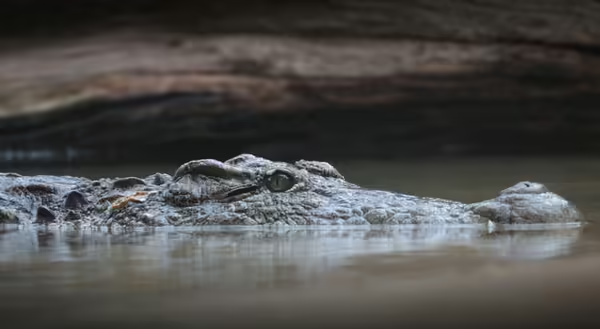
Gardens are full of critters – insects, squirrels, alligators? Last month, a Decatur woman was watering her flowers when she discovered an unusual reptile. Surprised Macon County Animal Control wardens caught the 3½ foot alligator, and the Illinois Department of Natural Resources is coordinating a long-term care facility for the animal while working to find out where it came from according to WAND News.
This is not the first time a large reptile has been found far north of its native range. Back in 2019, a similar creature was found in the Humboldt Park Lagoon in Cook County. Eventually, the 4foot-long alligator, adoringly named “Chance the Snapper,” was caught after a week-long search that required the expertise of a Florida reptile expert. Both these animals were likely someone’s pet.
The story of unusual animals found in unusual places is more common than we want to believe. Alligators make headlines, but there are many more subtle instances of released pets. It is illegal to release a pet into a public park in Illinois but that doesn’t stop it from happening. When pet owners can no longer care for their animals, they may think they’re giving it a good home by releasing it into the wild.
Unfortunately, there are typically two possible outcomes for a domesticated animal released into the wild:
- Demise
- Thrive
Both are a lose-lose situation for the environment or the animal itself.
The demise of released domesticated animals
When domesticated animals are released but are not equipped to handle natural conditions of that environment, they will most likely die without human intervention. This is the case of the infamous reptile friends. These animals have relied on human interaction to survive and will require that going forward. This story is common of most education animals at nature centers. A coyote or turtle is not at a nature center purely for education, it is there because survival in the wild is not an option. These animals are either too comfortable with humans to be considered safe, are unable to feed themselves, or simply cannot do things that animals would have learned to do in the wild.
Released domesticated animals can thrive at the expense of others
The other option for a pet released into the wild is almost more devastating than that individual animal dying. The released pet thriving is typically at the expense of the native species in that environment. The more pervasive animals that have naturalized to Illinois and caused damage to natural areas – known as invasive species – cause devastating impacts on our environment.
One pet that has naturalized to our Illinois environment is the domestic house cat. There are an estimated 65 million feral and free-range cats in the United States that are a result of un-spayed or neutered outdoor cats, released, or lost cats. Domestic cats are considered to be the single greatest source of anthropogenic mortality for U.S. birds and mammals, killing a minimum of 1.3 billion birds and 6.3 billion mammals annually., One free ranging cat can kill more than 100 wild animals each year, according to studies on the food habits.
What can we do?
Releasing any animal in the wild is never a good idea. Just like deciding what plants we grow in our garden, we need to be responsible stewards of this environment, thinking critically about what we release into nature. Even worms from bait or your compost bin can be a problem and it is better to throw them in the trash than in your backyard. Invasive jumping worms, once used as fish bait, are making their way across Illinois. When it comes to cats, it is important to be a responsible pet owner by keeping them indoors or supervising or confining their activities outdoors. It is also important to spay or neuter animals that are not kept for breeding.
As for alligators, or any other pet you may no longer be able to keep, never release it into the wild. It is a disservice to that animal, which may not be equipped to survive the wild conditions and the surrounding environment. Instead, contact your local animal control for options to relinquish it. And, if you are considering buying a pet of any kind, think critically about this addition to your home and do your research on its needs before purchasing.
MEET THE AUTHOR: Abigail Garofalo is a Natural Resources, Environment, & Energy Educator for Cook County. She manages the Cook County Master Naturalist program and the Conservation@Home program for University of Illinois Extension. She has a BS in Natural Resources and Environmental Sciences and MS in Agricultural Leadership Education both from University of Illinois Urbana Champaign. Her background in is environmental outreach and interpretation and works to create a culture of environmentalism through community building.
ABOUT THE BLOG: Naturalist News is a blog by University of Illinois Extension Master Naturalist staff and volunteers who bring you stories highlighting the individuals, places, wildlife, and plants that make this state amazing. Join us each week to learn something new, be inspired and become connected to your own community by recognizing the amazing ways we are all intertwined. Want to get notified when new Naturalist News posts are available? Sign up here!